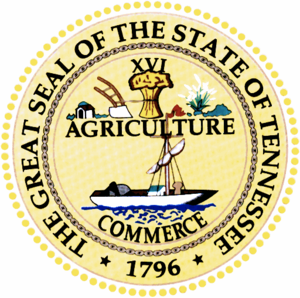
State Senate
State of Tennessee
Recycling group applauds Tennessee for enacting legislation protecting the environment by keeping harmful mercury out of landfills
Contact: Darlene Schlicher (615) 741-6336 or email: darlene.schlicher@capitol.tn.gov
(NASHVILLE, TN), August 11, 2010 – The Association of Lighting and Mercury Recyclers (ALMR) today applauded legislation sponsored by Senate Environment and Conservation Chairman Steve Southerland (R-Morristown) and State Representative David Hawk (R-Greeneville) to keep toxic mercury-added consumer products from being improperly disposed in landfills in Tennessee. The new law, Public Chapter 840, provides assistance through the Tennessee Department of Environment and Conservation for tanning bed facilities and large employers to recycle mercury containing products, which are predominantly fluorescent light bulbs.
“The ALMR applauds Tennessee for enacting this important law to keep harmful mercury out of the garbage and protect the environment,” said Paul Abernathy, Executive Director of the ALMR." The ALMR is a national organization that assists government and business with outreach and education for the promotion of mercury recovery from wastes. “We appreciate Senator Southerland and his colleagues’ efforts to help the business community become compliant and divert these wastes into recycling programs.”
“Improper management and disposal of these bulbs have been releasing mercury into the environment,” said Senator Southerland. “This causes hazardous contamination of land and waterways, which places our children’s future in danger.”
Health problems associated with mercury exposure include digestive, cardiovascular, nervous system and kidney-related illness. Experts maintain yearly usage of mercury containing lamps is in excess of one billion nationwide.
Other lighting products, besides fluorescent light bulbs, containing mercury includes high intensity discharge bulbs and projector lamps. In addition, the waste also includes many common materials like batteries, some electronic equipment, switches and thermostats. Abernathy said the legislation does not impose any hardship on businesses or the state government because there are already complete programs available through recycling facilities.
“All these items are easy to keep out of the environment by sending them to authorized recyclers. There are cost-effective recycling programs for business of all sizes” said Steve Barnett of Southeast Recycling Technologies, Inc. “Any costs for recycling light bulbs are very small compared to huge energy savings from using mercury bulbs in the first place” said Barnett, whose company services the entire state and southeast region.”
For more information see www.recyclebulbs.com or www.almr.org
